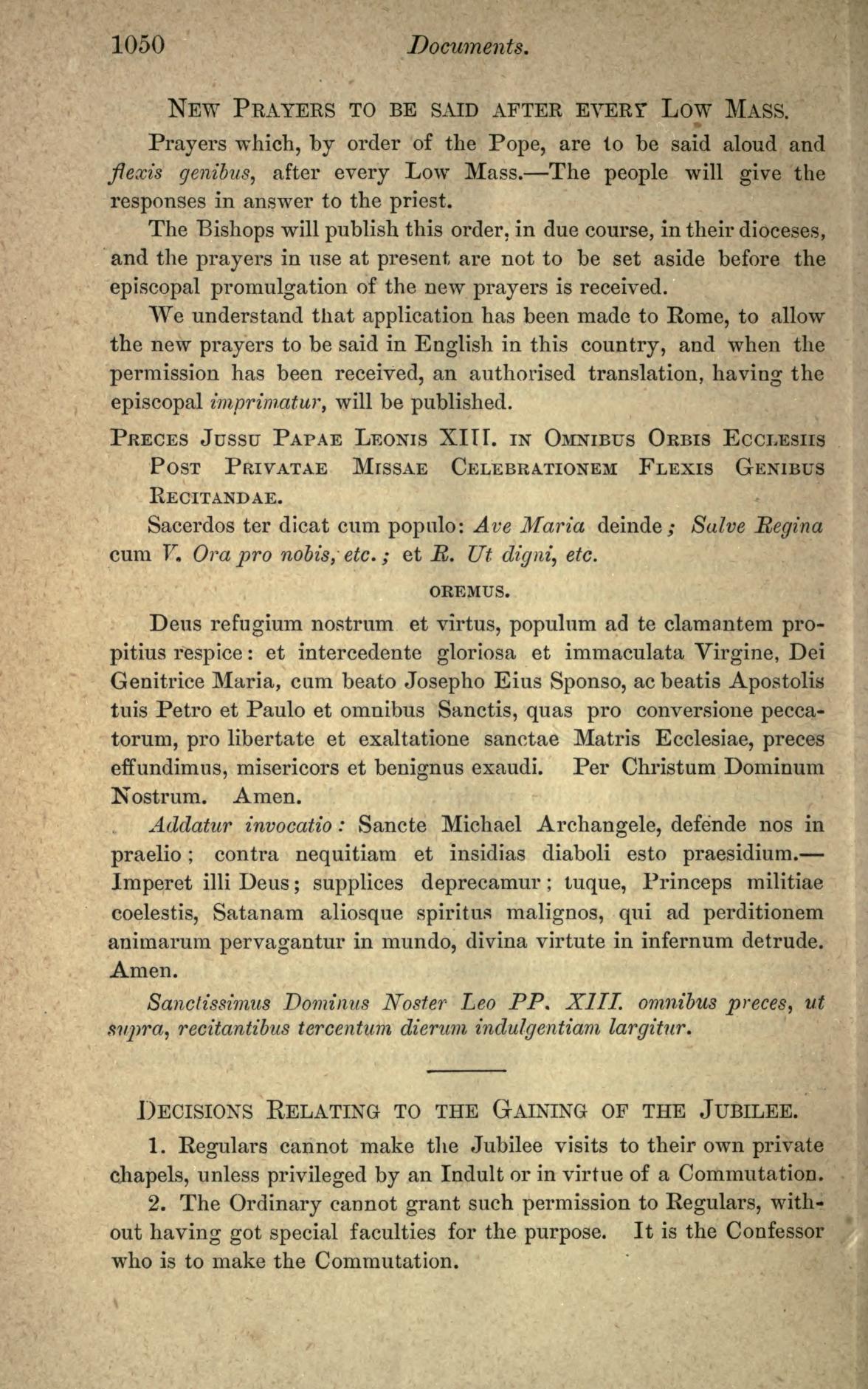Tags: prayer to Saint
Michael the Archangel,
Pope Leo XIII; archangelic protection in Latin; to be recited
three times and kneeling
‘Defende
nos in proelio’
([Saint
Michael,
Archangel,] May you assist us in our fight)
I first read about covid-19 on 25th January of last year, so
almost 12 months ago. Given that some very evil forces are using this virus
as a pretext to push for an agenda which has already been disastrous for
millions and millions and millions of human beings, I feel that the
following prayer, which calls to Saint Michael the Archangel for protection
(and which I came across on 26th
January 2018), might be of interest to anybody of the Christian creed who
believes that assistance can be obtained from a very important spiritual
entity in Christian theology by reciting a supplication to this entity. As
the prayer was composed in Latin by Pope Leo XIII in the 1880s*,
it should be recited in that tongue, ideally.
Pope Leo XIII’s prayer to Saint Michael the Archangel reads as follows in
Latin [as usual, words in dark green are my emphasis]:
Sancte Michael Archangele, defende
nos
in proelio; contra nequitiam et insidias
diaboli esto praesidium.
Imperet illi Deus; supplices deprecamur; tuque, Princeps militiae
coelestis, Satanam aliosque spiritus
malignos,
qui ad perditionem animarum pervagantur in mundo,
divina virtute in infernum detrude.
Amen.
Here is the translation in English which James Joyce gives in his famous
novel Ulysses (as it first
appeared on page
47 of the literary magazine The Little Review
[vol. 5,
no. 3] on the first of July 1918):
Blessed Michael, archangel, defend
us
in the hour of conflict. Be
our safeguard against the wickedness and snares of the devil (may
God restrain him we humbly pray): and do thou, O prince of the heavenly
host by the power of God thrust Satan down to hell and with him those
other wicked
spirits who wander through the world for the ruin of souls.
[‘Amen’ was left out!]
Please note that a longer form of this prayer exists BUT it was composed by
the same Pope specifically for the purpose of exorcism. In addition, prayers
to ward off evil exist in other religions (for example, in Islam) and some
are thousands of years old (e.g. Ancient Egypt) – hopefully, more in a
future blog entry.
Kevin J. Symonds even wrote a book on this subject, entitled ‘Pope Leo XIII
and the Prayer to St. Michael: An Historical and Theological Examination’;
an interesting excerpt (‘History of the Prayer’) is available at http://www.pcpbooks.net/leo-st-michael.
*
Even though I performed searches for
specific key words in search engines as well as in the digitised versions of
Acta sanctae sedis (http://www.vatican.va/archive/ass/documents/ASS-23-1890-91-ocr.pdf;
https://archive.org/details/actasanctaesedi18popegoog/page/n748/mode/2up?q=diaboli),
I
could not find an official statement published in 1886 from the Vatican
sources I consulted. Thanks to a note published on Wikipedia (https://en.wikipedia.org/wiki/Prayer_to_Saint_Michael#cite_note-1),
I
was nevertheless able to retrieve a contemporary reference in an
ecclesiastical source (the Irish
Ecclesiastical Review 7, 1886), which states that,
in each church in Christendom, priests, after mass, while
kneeling, are required to recite the prayer three times together
with their congregations before reciting the Ave
Maria (in Latin: ‘[...] in
omnibus orbis ecclesiis post privatae missae celebrationem flexis genibus
recitandae. Sacerdos ter dicat cum populo: Ave Maria deinde [...]’):
[source:
https://archive.org/stream/s3p2irishecclesi07dubluoft#page/1050/mode/2up]
Interestingly, although the prayer was scrapped after Vatican II, Pope
Francis (whom I do not like much, to be polite) asked that during the month
of October 2018 recitation of the Holy Rosary should end with the prayer
composed by Pope Leo XIII (Holy See Press Office communiqué, 29 September
2018):
https://press.vatican.va/content/salastampa/en/bollettino/pubblico/2018/09/29/180929d.html.
Lausanne, 12th January 2021

